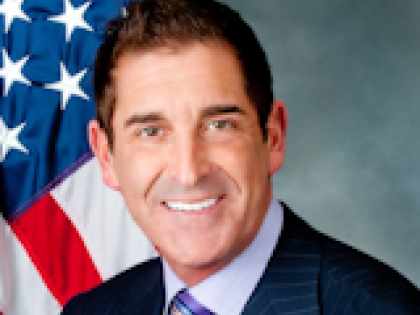
Strenghtening New York Cigarette Tax Collection Efforts
Jeffrey D. Klein
June 21, 2010
Senator Klein Supports Plan to Enforce Collection of Cigarette Taxes from Native American Sellers
State Senator and Deputy Majority Leader Jeff Klein (D-Bronx/Westchester) applauded the Senate's decision in taking a vital step toward collecting taxes from cigarettes sold on Native American reservations by passing the Governor’s budget extender on Monday. Governor Paterson’s extender bill included a provision to require greater enforcement of tax collection from cigarettes sold by Native American sellers and on reservations.
“Nearly a decade ago, I led the fight to ban the sale of cigarettes online and by mail-order. Now, because of the step we took in the Senate today, New York State will now have the added muscle it needs to collect this vital source of tax revenue in full and on time. By requiring these cigarettes to bear a tax stamp, New York State will garner an estimated $150 million in revenue during the remainder of this year alone, and in the future, our State can count on more than half a billion dollars in previously uncollected revenue each year," said State Senator and Deputy Majority Leader Jeffrey D. Klein (D-Bronx/Westchester).
Estimates are that New York State loses hundreds of millions of dollars each year in uncollected tax revenue from the sale of cigarettes online and by Native Americans to consumers living outside of reservations. In April 2009, Senator Klein joined Congressman Anthony Weiner in releasing a report that found the lack of tax collection on internet cigarette sales costs New York City alone approximately $150 million each year in uncollected revenue.
In 2000, legislation Klein sponsored was signed into law making it illegal in New York State to sell cigarettes over the internet and by mail-order to New York consumers, in an effort to help stop retailers' evasion of cigarette taxes and curb the sale of cigarettes to minors. The law applied to Federal Express, UPS, and other similar shippers, but not the U.S. Postal Service. Klein’s law, the first of its kind in the nation, imposed tougher civil and criminal penalties for cigarette tax evasion and closed a much abused loop-hole through which tax evading retailers could reapply for their license through a proxy.
Klein currently has a number of bills pending in the Senate regarding the collection of cigarette taxes. These pieces of legislation (S.1834, S.1891, S.6985) would require all cigarette wholesalers to only sell tax-stamped cigarettes; amend the formula for calculating cigarette wholesalers’ costs; and create criminal sanctions for non-compliance with cigarette tax collection laws.
Share this Article or Press Release
Newsroom
Go to Newsroom
